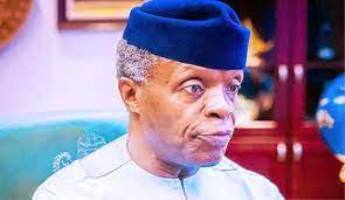The National Economic Council (NEC) has approved the Nigeria Agenda 2050, which aims to move Nigeria to an upper-middle-income country.
According to a statement signed by the Spokesperson to the Vice President, Laolu Akande, the council, endorsed the agenda in an emergency meeting on Tuesday.
The statement said that the plan presented the road map for accelerated, sustained, and broad-based growth and provided broad frameworks for reducing unemployment, poverty, inequality, and human deprivation.
It said that the agenda requires significant improvement in the country’s per capita GDP which will be powered by rapid and sustained economic growth.
“Nigeria’s long-term ambition is to improve its per capita GDP from about 2,084.05 dollars in 2020 to 6,223.23 dollars in 2030 and 33,328.02 dollars in 2050, with rapid and sustained economic growth, job creation, and poverty reduction.
“The Nigeria Agenda 2050 projects annual average real GDP growth of 7.0 percent.
“The real growth rate of the GDP of the first medium-term NDP 2021-2025 on average will be 4.65 percent and this will increase to 8.01 percent in the second NDP; subsequently, it is expected to increase to 8.43 percent in the third.
“Consequently, the number of full-time jobs created will be roughly 165 million during the agenda period to spur poverty reduction,’’ the statement quoted the VP.
Similarly, the Minister of State for Budget and National Planning, Prince Clem Agba, the statement said that the plan captured a lot of the expectations for Nigeria in the future if effectively implemented.
According to him, the Federal Government had taken unprecedented steps in ensuring the operationalization of the plan, especially with the inauguration of the Steering Committee of the National Development Plan by the vice president.
“Nigeria Agenda 2050 is a perspective plan designed to transform the country into an Upper-Middle Income Country, with a significant improvement in per capita income.
“The plan aims to fully engage all resources, reduce poverty, and achieve social and economic stability.
“It also targets developing a mechanism for achieving a sustainable environment consistent with global concerns about climate change,” Agba said.


